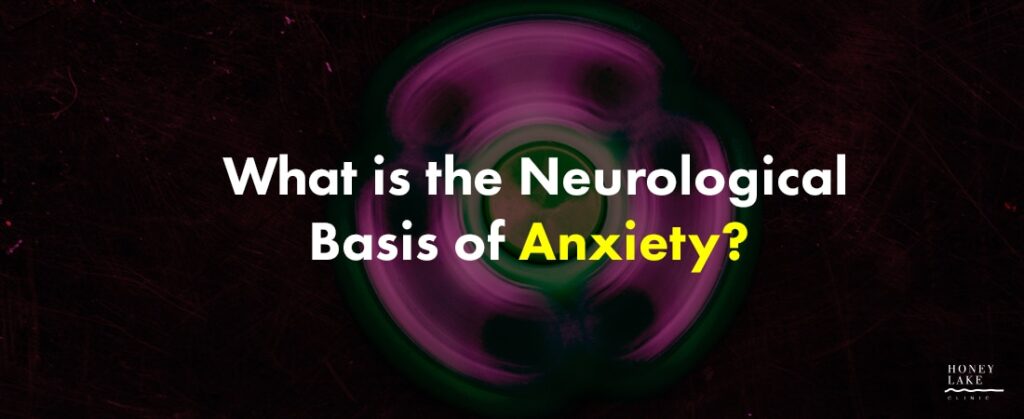What is the Neurological Basis of Anxiety?
A person suffering from an anxiety disorder experiences neurologically-based changes in mood and function. What does this look like?
Our various personality traits and emotional responses are the result of interaction between our genetic coding and environmental influences. Our genes make us more receptive to some stimuli, and play a role in developing resilience to other stimuli. Our brains process it all and guide our responses and reactions.
Fear and stress are normal defensive reactions to difficulties and threats which help us to deal with challenges more efficiently. Anxiety, however, is different from fear in that it is a reaction to a future concern that may or may not be realistic. To some extent, having anxiety is a normal, human reaction. However, if it continues for a prolonged period, it can have an adverse effect on your daily life and health.
Everyone feels a little anxious from time to time. More than a temporary worry or fear, an anxiety or panic attack is characterized by intense feelings accompanied by physical symptoms.
In the state of anxiety, worrying makes it difficult to concentrate and leads to irritability. Physical symptoms like heart palpation, sweating, and gastrointestinal changes are also common in this state. Anxiety is considered a disorder when symptoms persist over a period of six or more months.
Your Brain: Stress and Anxiety
The higher cognitive centers in your brain are located in the prefrontal cortex. They are involved in thinking, planning, and social behavior. This prefrontal cortex is the part of the brain that helps us to keep our emotional responses in check.
Most of the emotion processing takes place in other parts of the cortex. These anatomical brain structures are collectively called the limbic system. One fundamental structure in the limbic system is the hippocampus that plays a vital role in the stress response and regulation of the hypothalamic–pituitary–adrenal (HPA) axis. Both hippocampal growth and neurogenesis play an essential role in the development of resiliency towards stress and anxiety. The limbic system component that serves to regulate emotions is the amygdala. The amygdala is key to the formation of fear and anxiety.
Functionality or communication between these various brain centers and networks takes place through neurotransmitters. In the case of emotional responses, gamma-aminobutyric acid (GABA) is known to have an inhibitory effect on emotions, while glutamate has an excitatory effect. The roles of serotonin, dopamine, and norepinephrine are also well documented in the pathogenesis of various emotional states.
Neuroscience can observe these neurotransmitters—see the pathways—and thereby effectively lead us in forming an effective treatment plan to conquer your anxiety.
Anxiety can be successfully treated with the right information, help, and support. With treatment, you can get back to a fulfilling life. We can help!
At Honey Lake Clinic, our experienced doctors and staff strongly believe that faith-based treatment, encompassing spiritual, physical and mental health, will provide you with the long-lasting tools and knowledge to find happiness and wholeness again. Let us help you take back your life.
With anxiety, shorter-term medications may be helpful for decreasing your anxiety, allowing you to learn better stress and emotional management skills. The spiritual side of treatment is invaluable. Learning to lean on God for peace and rest and to apply Biblical instruction will be the ultimate help to renew your mind and deal with adversity, worry, and fear.



